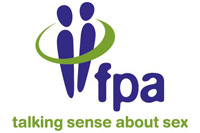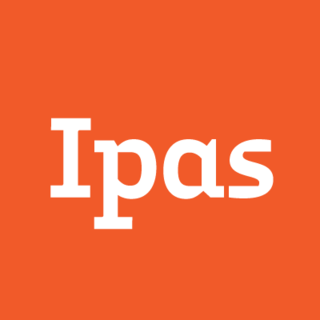Sterilization is any of a number of medical methods of birth control that intentionally leaves a person unable to reproduce. Sterilization methods include both surgical and non-surgical, and exist for both males and females. Sterilization procedures are intended to be permanent; reversal is generally difficult or impossible.

Teenage pregnancy, also known as adolescent pregnancy, is pregnancy in a female adolescent under the age of 20. This includes those who are legally considered adults in their country. The WHO defines adolescence as the period between the ages of 10 and 19 years. Pregnancy can occur with sexual intercourse after the start of ovulation, which can happen before the first menstrual period (menarche). In healthy, well-nourished girls, the first period usually takes place between the ages of 13 to 16.

Family planning is the consideration of the number of children a person wishes to have, including the choice to have no children, and the age at which they wish to have them. Things that may play a role on family planning decisions include marital situation, career or work considerations, financial situations. If sexually active, family planning may involve the use of contraception and other techniques to control the timing of reproduction.
Reproductive rights are legal rights and freedoms relating to reproduction and reproductive health that vary amongst countries around the world. The World Health Organization defines reproductive rights as follows:
Reproductive rights rest on the recognition of the basic right of all couples and individuals to decide freely and responsibly the number, spacing and timing of their children and to have the information and means to do so, and the right to attain the highest standard of sexual and reproductive health. They also include the right of all to make decisions concerning reproduction free of discrimination, coercion and violence.

Sexual and reproductive health (SRH) is a field of research, health care, and social activism that explores the health of an individual's reproductive system and sexual well-being during all stages of their life.

Sexual health clinics specialize in the prevention and treatment of sexually transmitted infections.

FPA was a UK registered charity working to enable people to make informed choices about sex and to enjoy sexual health. It was the national affiliate for the International Planned Parenthood Federation in the United Kingdom. It celebrated its 80th anniversary in 2010. Its motto was "Talking sense about sex". The charity was placed into liquidation on 15 May 2019, but the FPA name continues as a limited company selling sexual health resources.

Within Peru, human rights are protected under the Constitution. The Peruvian Constitution underscores the importance of the state to preserve the dignity of all human beings. The Constitution includes articles that promote the right to self-determination, equality and non-discrimination, and life. Ever since the end of the internal conflict in Peru that occurred from 1980 to 2000, the country has worked to integrate humanitarian regulations and statuses into national law. However, there are still instances of particular rights being challenged. The 2014 Human Rights Report by the United States Department of State explains how even with the Constitution protecting these basic human rights, many violations continue to occur despite these laws. In spite of the country's progress since the Maoist insurgency, many problems are still visible and show the continued marginalization and displacement of those who suffered through the systematic violence of the Peruvian conflict. In 2001, the Truth and Reconciliation Commission was founded to address the abuses that took place during this conflict.
Reproductive justice is a critical feminist framework that was invented as a response to United States reproductive politics. The three core values of reproductive justice are the right to have a child, the right to not have a child, and the right to parent a child or children in safe and healthy environments. The framework moves women's reproductive rights past a legal and political debate to incorporate the economic, social, and health factors that impact women's reproductive choices and decision-making ability.

Women on Web (WoW) is a Canadian non-profit organization that aims to increase access to safe abortion known for its online abortion service accessible in multiple countries. The organization was founded by Dr. Rebecca Gomperts, a Dutch physician, in 2005.

Birth control, also known as contraception, anticonception, and fertility control, is the use of methods or devices to prevent unintended pregnancy. Birth control has been used since ancient times, but effective and safe methods of birth control only became available in the 20th century. Planning, making available, and using human birth control is called family planning. Some cultures limit or discourage access to birth control because they consider it to be morally, religiously, or politically undesirable.
Unintended pregnancies are pregnancies that are mistimed, unplanned or unwanted at the time of conception.

Ipas is an international, non-governmental organization that seeks to increase access to safe abortions and contraception. To this end the organization informs women how to obtain safe and legal abortions and trains relevant partners in Africa, Asia, and Latin America on how to provide and advocate for these.
The Faculty of Sexual and Reproductive Healthcare (FSRH) is a faculty of the Royal College of Obstetricians and Gynaecologists. It is the standard-setting organisation for family planning and sexual health physicians in the United Kingdom.
The Reproductive Health Supplies Coalition (RHSC) is a global partnership of public, private and non-governmental organizations. Its aim is to ensure that all people in low- and middle-income countries can choose, obtain and use the supplies and appropriate services they need to safeguard their reproductive health. Since 2004, the Coalition has been part of international efforts to secure reproductive health supplies by increasing resources, strengthening systems, and building effective partnerships.
Reproductive coercion is a collection of behaviors that interfere with decision-making related to reproductive health. These behaviors are meant to maintain power and control related to reproductive health by a current, former, or hopeful intimate or romantic partner, but they can also be perpetrated by parents or in-laws. Coercive behaviors infringe on individuals' reproductive rights and reduce their reproductive autonomy.
Contraceptive rights in New Zealand are extensive. There are many options available to women seeking contraception. There are also options for men. Government funding keeps the cost of most types of contraception low in most cases. Family planning options in New Zealand are generally in keeping with the United Nations stance towards sexual and reproductive rights although the country has received criticism in some aspects.
The Native American Women's Health Education Resource Center (NAWHERC) is a nonprofit organization that provides health resources to Native American women and also advocates for women's health, reproductive choices, economic issues and land and water rights. NAWHERC is first organization dedicated to women's health to open up on an Indian Reservation in the United States. Its agenda is "consistently broad" because NAWHERC does not separate women's issues from community issues.
In Yemen, abortions are only “permitted to save the life of a pregnant woman”, making it one of the strictest abortion laws in the Middle East and the world. Abortion is not widely accepted in Yemeni society. However, because of the recent conflict in Yemen, rape, honor killings, and unsafe abortions have increased in Yemen. According to a study conducted by Canadian Studies in Population, the number of unsafe and illegal abortions are high in Yemen, which can lead to fatal health risks for women.
The Reproductive Health Access Project, Inc. (RHAP) is a nonprofit organization that seeks to integrate abortion, contraception, and miscarriage care into mainstream medicine. It is well known for its network that organizes over 3,500 primary clinicians into local groups called "clusters" which work to include reproductive health care in primary care practice, and for its fellowship and hands-on clinical training programs.








